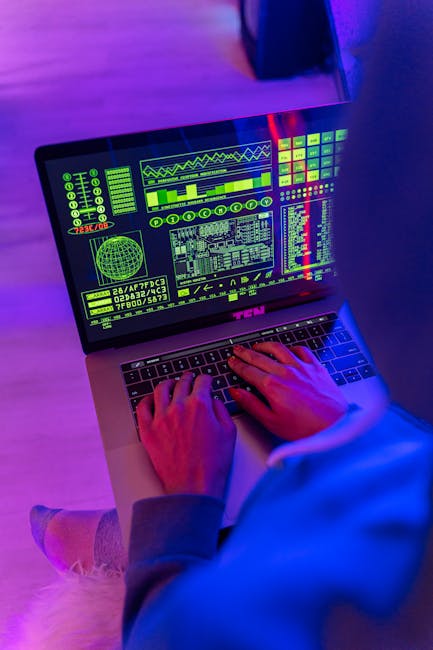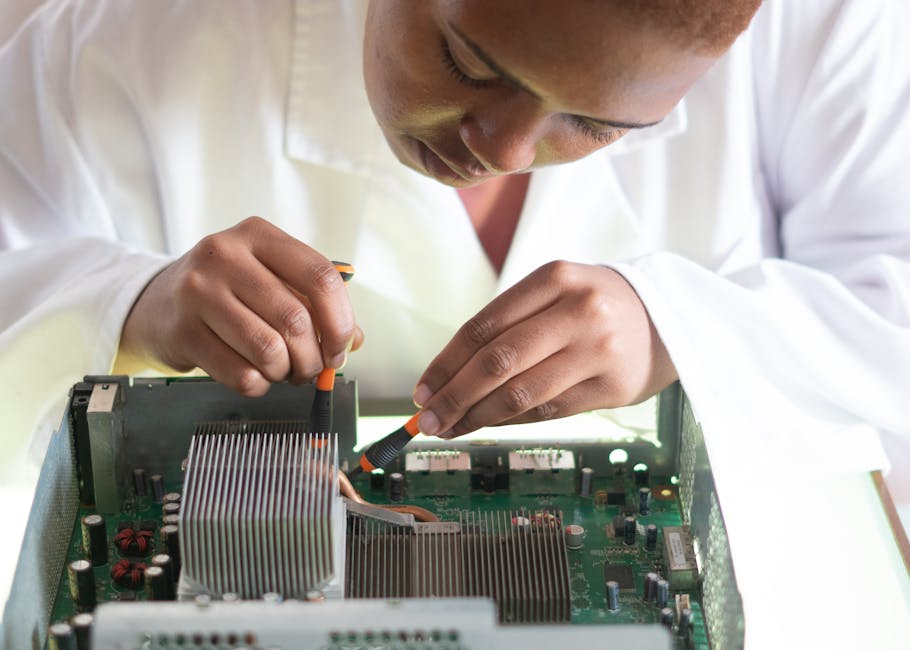Unlock encrypted content
Please enter your SSCE key to initiate on-the-fly decryption.
Decryption key: (Click cancel if you don't have the key)
Copied link to clipboard.
This feature is unavailable for free accounts. Upgrade now and enjoy all Premium benefits.
Go Premium!
This feature is unavailable for free accounts. Upgrade now and enjoy all Premium benefits.
Go Premium!
Please open this page in browser ( Google Chrome or Safari ) to use this feature.
Open In Browser
Genetic Engineering, Internet Security, Nanotechnology, and More: The Future of Technology
Random related video for this blog.
Copied share link to clipboard.
From genetic engineering to internet security, nanotechnology to data storage, augmented reality (AR) to artificial intelligence (AI) uprising, there are numerous exciting developments that are revolutionizing various industries. In this article, we will delve into these cutting-edge technologies, exploring their potential, benefits, and implications for the future.
Genetic Engineering: Unlocking the Secrets of Life
Genetic engineering, a field that involves manipulating an organism's DNA, holds immense promise for the future of healthcare, agriculture, and beyond. By altering an organism's genetic makeup, scientists can enhance desirable traits, eradicate genetic diseases, and create new possibilities for personalized medicine. The potential applications of genetic engineering are vast, ranging from developing drought-resistant crops to producing life-saving pharmaceuticals.
One of the most notable breakthroughs in genetic engineering is the development of CRISPR-Cas9, a revolutionary gene-editing tool. CRISPR-Cas9 allows scientists to precisely edit DNA sequences, opening up endless possibilities for curing genetic disorders and advancing medical treatments. For instance, this technology has shown promise in treating diseases like sickle cell anemia and muscular dystrophy, offering hope to millions of people worldwide.
However, with great power comes great responsibility. The ethical implications of genetic engineering cannot be ignored. As we gain the ability to modify the genetic code, questions arise about the potential misuse of this technology. It is crucial to have robust regulations and ethical guidelines in place to ensure the responsible and ethical use of genetic engineering in the future.
Internet Security: Protecting Our Digital Lives
In an increasingly interconnected world, internet security has become a pressing concern. With the rise of cyber threats, protecting our digital lives has become more important than ever. From personal information to financial transactions, our online activities are vulnerable to hacking, data breaches, and identity theft.
Nanotechnology, with its ability to manipulate and engineer materials at the nanoscale, offers potential solutions for enhancing internet security. By developing nanosensors and nanodevices, researchers can create highly sensitive and efficient security systems. For example, nanosensors embedded in devices can detect and prevent unauthorized access, while nanodevices can provide secure encryption and authentication protocols.
Furthermore, advancements in artificial intelligence (AI) and machine learning algorithms are revolutionizing internet security. AI-powered systems can analyze vast amounts of data, identify patterns, and detect anomalies in real-time, enabling proactive threat detection and prevention. These intelligent systems can adapt and learn from new threats, making them highly effective in combating cybercrime.
However, as technology evolves, so do the methods used by cybercriminals. It is a constant battle to stay one step ahead in the cat-and-mouse game of internet security. Ongoing research, collaboration between industry and academia, and continuous updates to security protocols are essential to ensure a safe and secure online environment for individuals and businesses alike.
Nanotechnology: The Science of the Small
Nanotechnology, the manipulation of matter at the nanoscale, is poised to revolutionize various industries, from electronics to medicine. At the nanoscale, materials exhibit unique properties and behaviors, allowing scientists to create novel materials with enhanced characteristics.
One of the most promising applications of nanotechnology is in the field of data storage. Traditional data storage methods, such as hard drives and flash memory, have limitations in terms of capacity and speed. Nanotechnology offers the potential to overcome these limitations by developing storage devices at the nanoscale. For example, researchers are exploring the use of nanomaterials, such as graphene, to create ultra-dense storage devices that can store vast amounts of data in a compact form.
Augmented reality (AR) is another area where nanotechnology is making significant contributions. AR overlays digital information onto the physical world, enhancing our perception and interaction with our surroundings. Nanoscale sensors and displays can enable more immersive AR experiences, with ultra-high resolution and improved energy efficiency. This opens up new possibilities for applications in fields such as education, entertainment, and industrial training.
FileLu.com: Empowering Data Management
In this era of information overload, effective data management is crucial for individuals and businesses alike. FileLu.com, a leading cloud storage provider, offers a range of features and services to simplify and streamline data management.
With FileLu.com, users can securely store and access their files from anywhere, at any time. Whether it's important documents, photos, videos, or large files, FileLu.com provides a reliable and convenient solution for data storage and backup. The platform offers file transfer, FTP backup, auto camera upload, and encryption file sharing capabilities, ensuring the security and privacy of users' data.
FileLu.com's large file transfer capabilities are particularly noteworthy. Users can easily send files up to 250 GB in size, making it ideal for sharing large media files, collaborating on projects, or transferring data between devices. Moreover, the platform offers free plans with storage capacities ranging from 10 GB to 250 GB, as well as premium plans with up to 500 TB of storage at affordable prices.
In conclusion, the future of technology is filled with exciting possibilities. Genetic engineering, internet security, nanotechnology, augmented reality, and data storage are just a few areas that are poised to transform our lives in the coming years. As these technologies continue to evolve, it is essential to harness their potential while addressing the ethical, security, and privacy concerns that come with them. By embracing innovation and responsible practices, we can shape a future where technology enhances our lives and creates a better world for all.
By Amelia Isabella
Email: [email protected]
Related
Digital Transformation: Empowering the Future with IoT, Cloud Computing, and...
July 19, 2023
Read More
Efficient File Management System: Simplifying Data Storage and Security for...
July 19, 2023
Read More
Radar Systems: Revolutionizing Smart Contracts, File Collaboration, and More
July 19, 2023
Read More
Scalable Cloud Storage Architecture: Empowering Data Privacy and Collaboration
July 19, 2023
Read More
Robotics Online: Revolutionizing Data Storage with Cloud Technology and Artificial...
July 20, 2023
Read More
Popular
Latest
The Future of Digital Transformation: Exploring Smart Homes, Efficient File...
November 30, 2025
Read More
Exploring the Benefits of Cloud Storage and Innovative Technologies in...
November 26, 2025
Read More
The Future of Technology: Exploring Biohacking, Space Tourism, and Digital...
November 23, 2025
Read More
The Future of File Sharing: Streamlined Workflows for Photographers and...
November 19, 2025
Read More
Exploring the Intersection of Technology: From Cybersecurity to Augmented Reality...
November 16, 2025
Read More
The Future of File Management: Embracing Edge Computing and Efficient...
November 12, 2025
Read More
The Future of File Sharing: Exploring User-Friendly Solutions and Data...
November 5, 2025
Read More
The Future of Cloud Storage: How FileLu Empowers Creative Professionals...
November 2, 2025
Read More
The Future of Autonomous Technologies: Innovations in Robotics, File Sharing,...
October 29, 2025
Read More
Emerging Technologies Revolutionizing File Management: From Li-Fi to Robust Collaboration...
October 26, 2025
Read More
Emerging Technologies: Exploring the Impact of File Access Auditing, Genetic...
October 19, 2025
Read More
The Future of Data Storage: Exploring Advanced Encryption, Mobile Integration,...
October 5, 2025
Read More
Exploring the Future of Data Management: Security, Efficiency, and Cognitive...
September 28, 2025
Read More
Revolutionizing Data Management: Innovations in Storage, Security, and Sustainable Technology.
September 24, 2025
Read More
















